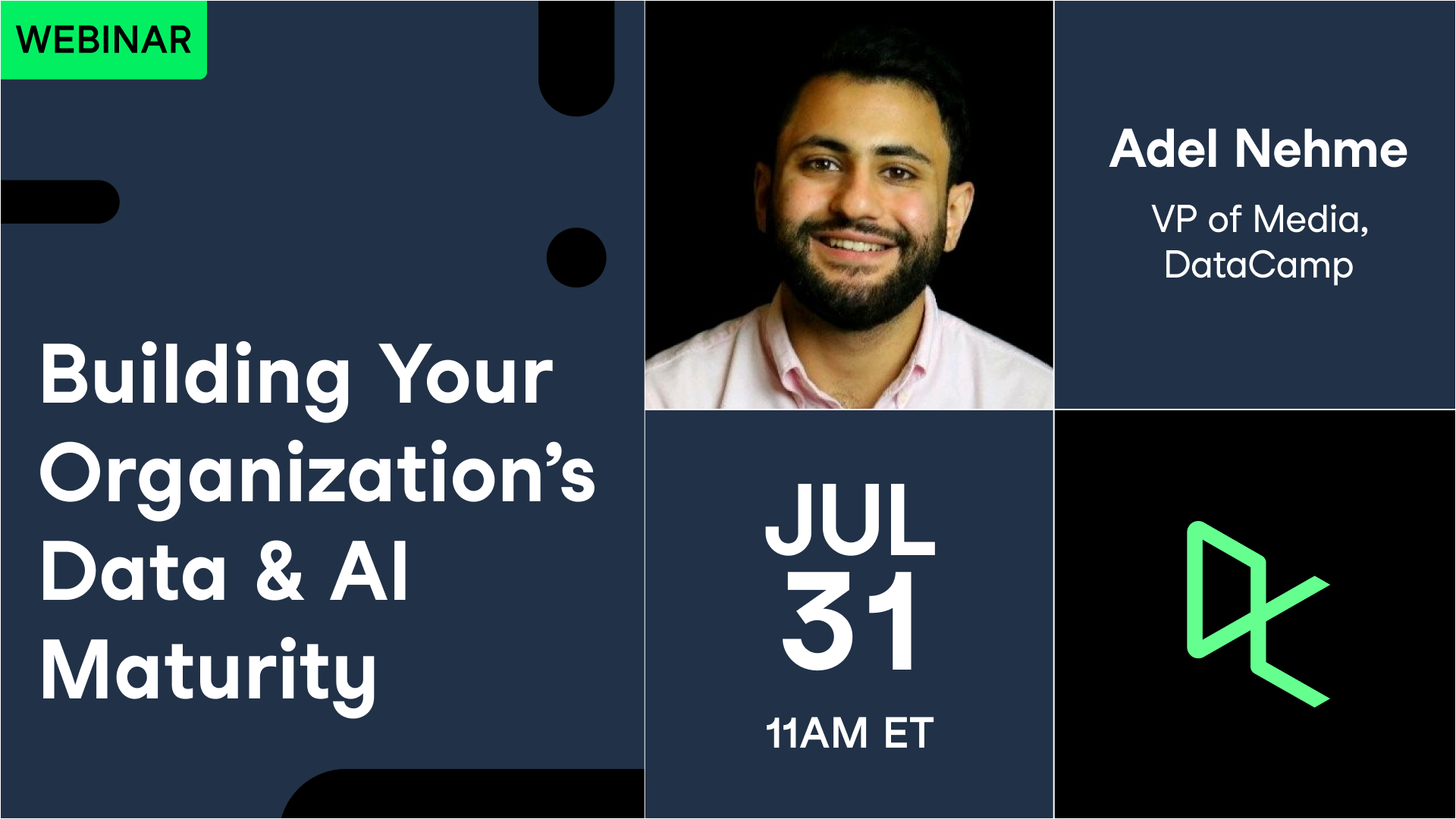Direkt zum InhaltWeitere Informationen





Lautsprecher
Trainierst du 2 oder mehr?
Erhalten Sie für Ihr Team Zugriff auf die vollständige DataCamp-Bibliothek mit zentralisierten Berichten, Zuweisungen, Projekten und mehrVerwandt
white paper
Your Organization's Guide to Data Maturity
Learn how evaluate and scale data maturity throughout your organizationwhite paper
Your Organization's Guide to Data Maturity
Learn how evaluate and scale data maturity throughout your organizationwebinar
The Learning Leader's Guide to AI Literacy
Adel Nehme, VP of Media at DataCamp, walks you through how to foster organization-wide AI literacy.webinar
Bridging the Generative AI Talent Gap
Adel Nehme, VP of Media, discusses the state of the AI skills gap, introducing a comprehensive framework for upskilling all learning personas within your organization.webinar
Increasing Your Organization's Data & AI Maturity
John Thompson, the Head of AI at EY, and Robin Sutara, a Field Chief Data Strategy Officer at Databricks, teach you how to assess your data and AI maturity, and how to improve it.webinar
8 Rules for Better Data Storytelling
In this session, Adel Nehme, VP of Media at DataCamp, will share 8 practical steps and best practices for telling better data stories that drive business impact.Join 5000+ companies and 80% of the Fortune 1000 who use DataCamp to upskill their teams.
Loved by thousands of companies

